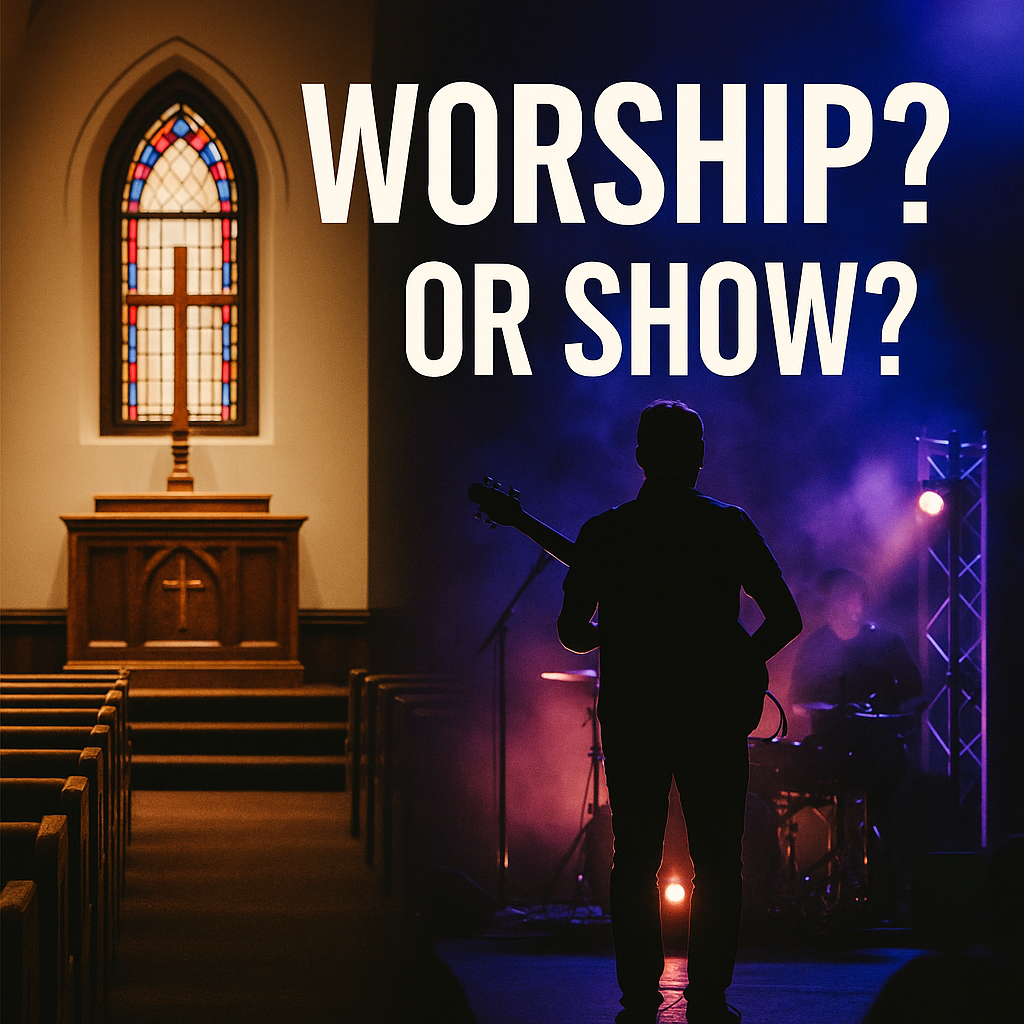By Dr. Anderson Isiagu
Those who are familiar with church dynamics and church history have noticed trends that have become increasingly popular during worship sessions.
In fact, if you are like me, you sometimes wonder whether you are actually in a worship session or just participating in a show.
Welcome to the Dr. Anderson Isiagu podcast, “D.R.A.I.P,” where I share my musings on all things music, faith, and culture.
Today’s episode is titled “When Worship Becomes Performance.”
Worship was never meant to be a spectacle. In its purest form, worship is intended as a dialogue, a conversation between the human and the divine. In the early church, worship was participatory and communal. It was a collective activity meant for active engagement, not passive observation.
In John 4:23, Scripture states: “Yet a time is coming and has now come when the true worshippers will worship the Father in the Spirit and in truth, for they are the kind of worshippers the Father seeks.” But what does it really mean to worship God in spirit and in truth? This involves acknowledging God for who He is, His majesty and His power, without making our circumstances the primary focus. Worship in the Spirit means being guided fully by the Holy Spirit, entering God’s presence authentically. Worship transcends rituals and songs; it includes all acts that acknowledge God’s supremacy, including kindness and humility.
True worship, therefore, entails Spirit rather than performance, and truth rather than trends. It rejects worldly popularity and stage charisma in favor of authentic spiritual leadership.
A rising concern for many purists is the modern transformation of sanctuaries into performance venues. Sanctuaries today increasingly resemble pop-concert halls, featuring LED walls, concert-style lighting, heavy bass, click tracks, in-ear monitoring, and even smoke machines. While these tools can enhance worship, they become problematic when production quality overshadows spiritual engagement. As a music director in both Lagos, Nigeria, and Los Angeles, California, I’ve witnessed worship sessions rigidly bound by schedules, often interrupting genuine spiritual experiences due to strict timing and production demands.
Another significant shift is the removal of altars, either literally or symbolically, replaced by acoustically perfected concert stages. This shift unintentionally (or intentionally) centers performers and clergy rather than God, promoting visibility and prominence for individuals rather than humility and reverence toward God. An acquaintance once explained to me that churches deliberately use club-style music to attract youth from clubs to church, raising questions about substituting genuine spiritual anointing with entertainment value.
As a church musician myself, I deeply understand the struggle between ministering sincerely and feeling pressured to entertain. True worship moves people spiritually, while performance merely evokes emotion. To worship leaders and clergy: pursuing excellence in worship is commendable but should never devolve into mere performance. Excellence should reflect giving God our very best, guided humbly by the Holy Spirit.
This brings to mind King David’s statement in 2 Samuel 24, where he declares, “I will not offer to the Lord that which costs me nothing.” Worship, therefore, is an offering of our best (talent, heart, sincerity), everything we can muster.
When we prioritize performance over authentic worship, we lose reverence, spontaneity, and authenticity. We create passive spectators rather than active worshippers, missing genuine spiritual encounters.
To return to genuine worship, we must train musicians as ministers, shifting our language from “set lists” to “services,” from “performance” to “presence.” We must embrace silence, weeping, repentance, and spontaneity whenever the Spirit moves.
The Second Vatican Council’s Sacrosanctum Concilium (1963) states that sacred music is integral to worship, fostering unity, solemnity, and prayerful delight rather than serving as mere decoration or entertainment. Protestant and Pentecostal traditions similarly emphasize sincere worship over performance-driven spectacles.
Yet these well-articulated doctrines often falter in practical application, highlighting the disconnect between intention and practice. Worship spaces must align physically and spiritually with these foundational principles.
True worship is ultimately about surrender, akin to a person who, realizing defeat, surrenders completely. It requires yielding our pride, aspirations, and status, fully acknowledging God’s sovereignty.
May our acts of worship, whether musical or acts of kindness, reach heaven like Abel’s accepted sacrifice, blessing generations thereafter. As you reflect on authentic worship, stay blessed, and see you in the next episode.
Thank you for tuning in to the Dr. Anderson Isiagu podcast, “Drape.” If this resonates, please go to my YouTube channel, Facebook, and Instagram to like, share, subscribe, and support me. Thank you.
Here is a YouTube video of me addressing the subject: https://www.youtube.com/watch?v=L2POPbG5rg4&t=25s




